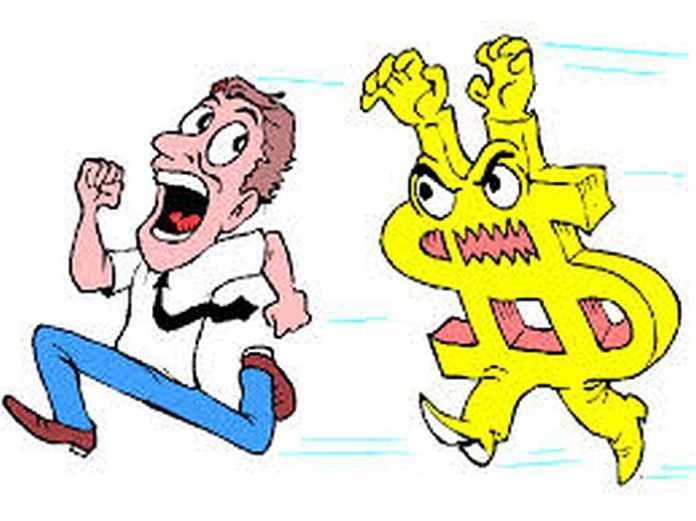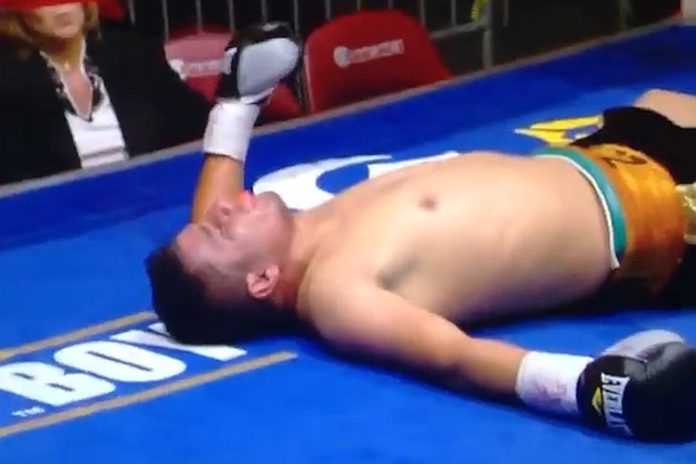 Two stunning performances took last Friday’s IAAF Diamond League Final at the AG Memorial Van Damme in Brussels from noteworthy to historic:
Two stunning performances took last Friday’s IAAF Diamond League Final at the AG Memorial Van Damme in Brussels from noteworthy to historic:
∙ Christian Coleman of the U.S. exploded from the blocks and was never challenged on the way to the world’s fastest 100 m time in three years in 9.79, a lifetime best and moving him to no. 7 in the history of the event.
∙ Kenya’s Selemon Barega, 18, not only ran the first sub-13 5,000 m of the season, he ran a 55.9 last lap and a 1:56.4 last 800 to run the sixth-fastest time in history – and moving him to no. 4 on the all-time list – in 12:43.02. It’s the fastest time in 13 years!
Let’s look at what Coleman did first. After twice setting the indoor world record in the 60 m – only one was ratified – he endured injury after injury, but came to Brussels healthy.
“Officially a wrap for my rookie season. Started it off with a 60m World Record. Went through one of the toughest situations of my life dealing with a hamstring injury. Stayed SOLID through the highs and lows, and ended off my season the 3rd fastest American to ever run 100m, 7th fastest ever. Learned so much this season that’ll help me the rest of my career. Thank you to my team and my support system for holding it down and thank you everyone who never stopped believing in me! Overall 2018 was a great year and one I’ll never forget. 2019 will be scary.”
Coleman’s stunner stole the show from prior world leader Ronnie Baker, who recovered enough to run 9.93 for second, ahead of Jamaica’s Yohan Blake (9.94), who said afterwards that “My reacting time was awful, I tried to catch up to my opponents after that but it was impossible and I don´t know why. It´s so disappointing because I had the feeling that my legs were good today. I could have won the race.”
No, he couldn’t. No one was going to beat Coleman, as no one gained on him after the 60 m mark as had been the case in prior races this season. He streamed through the finish and his 9.79 tied him with what was a world record by Maurice Greene (USA) in 1999, equal-seventh in world history and equal-third all-time U.S. But NBC’s Ato Boldon noted in a post-race Tweet:
“Here’s why @__coleman’s 9.79 today in Brussels gets the attention of stat guys like me. The current American record by Tyson Gay of 9.69 (+1.9) converts to 9.78 with zero wind. Coleman’s performance today of 9.79 (-0.3) converts to 9.77.”
Has the U.S. sprint corps ever been deeper? There’s Coleman (9.79), Baker (9.87), Noah Lyles (9.88), Michael Rodgers (9.89) – the top four on the year list – and five more at 9.99 or faster in 2018 … not including reigning World Champion Justin Gatlin!
Barega, fifth at the World Championships at 5,000 m last year, broke free with countrymen Hagos Gebrhiwet and Yomif Kejelcha with three laps to go and continued a hot pace and ran the final three laps in 2:57.6 to finish at 12:43.02. It’s the sixth fastest race of all time – he’s now the no. 4 performer – while Gebrhiwet’s 12:45.82 moved him to no. 5 on the all-time list, with the 10th-fastest race in history. Third-place Kejelcha ran 12:46.79 to become no. 7 all-time and the top eight finishers all broke 13 minutes!
Those top eight also authored the top eight marks of 2018 (so far) and Paul Chelimo’s 12:57.55 lifetime best in sixth places him no. 4 on the all-time U.S. list, with the seventh-fastest performance.
And who knows what the teen-aged Barega can do? At the end of the 2015 season, he had a best of 13:58.58. Over the past three seasons, he has improved by 37.5 seconds, 21.7 seconds and this year by 12.5 seconds!
French coach P.J. Vazel tweeted this, comparing Barega’s run to the world record of 12:37.35 by Kenenisa Bekele (ETH) in 2004:
splits Barega vs Bekele WR
1k 2:32.8 | 2:33.8
2k 2:39.5 | 2:31.9
3k 2:32.6 | 2:31.7
4k 2:31.1 | 2:30.59
5k 2:27.0 | 2:29.42
= 12:43.02 | 12:37.35
▸ can break WR
Those two races made history on Friday, but there were others! The highlights:
∙ Men’s 800 m: Kenya’s Emmanuel Korir confirmed he’s the best 800 m man on the planet by running away from Marcin Lewandowski (POL) on the home straight for a 1:44.72-1:45.21 win.
∙ Men’s 110 m Hurdles: Russia’s Sergey Shubenkov won the Diamond League in 12.97, avenging his loss to France’s Pascal Martinot-Lagarde at the European Championships. Spain’s Orlando Ortega was second (13.10) and Martinot-Lagarde was fourth (13.36).
∙ Men’s Pole Vault: Swede Mondo Duplantis looked sharp in his LSU uniform – classes began on 20 August – but the title came down to a duel between Russia’s Timor Morgunov and reigning World Champion Sam Kendricks of the U.S. Morgunov managed 5.93 m (19-5 1/2) and Kendricks was unable to match, but cleared 5.88 m (19-3 1/2) for second.
∙ Women’s 200 m: Shaunae Miller-Uibo completed her 11th final of the season with her 11th win, winning easily by 22.12-22.53 over Dafne Schippers (NED), who ran on Thursday in Zurich.
∙ Women’s 1,500 m: A great race came down to the final straightaway between Britain’s Laura Muir and American Shelby Houlihan. But even Houlihan’s great finishing speed wasn’t enough and Muir held on to win in 3:58.49 (to 3:58.94).
“I made a tactical error today,” said Houlihan afterwards. “I should have been with the leading group from the beginning, but I wasn’t. I still managed to catch up with them during the race and in the end I thought I could win the race in the sprint. However, the last 70 m I saw that Laura kept the good pace and I knew I would have to settle for second place. Too bad, because I really thought I could win the race today.”
Third in 3:59.41 was Sifan Hassan (NED), who was second in the Zurich 5,000 m the day before to Kenya’s Hellen Obiri.
∙ Women’s 3,000 m Steeple: No way that Beatrice Chepkoech (KEN) was going to threaten her world record of 8:44.32, right? Well, no, but she ran away with the race and finished with the no. 3 performance in history at 8:55.10! With apologies to Coleman and Barega, she might be the most unbeatable runner in the world right now.
Chepkoech’s pace was so strong that Norah Keruto (KEN) was well back in second at 8:59.62, moving to no. 5 all-time with the eighth-fastest performance ever. Even though they never challenged for the podium, Americans Emma Coburn (4th: 9:06.51) and Courtney Frerichs (6th: 9:07.07) ran the nos. 3-4 times in U.S. history!
∙ Women’s 100 m Hurdles: A great showdown between Olympic champ Brianna Rollins-McNeal and world-record holder Keni Harrison was so close that neither wanted the winner’s flowers right after the race. Rollins-McNeal was awarded the win in 12.61 to 12.63 for Harrison. Said Rollins-McNeal afterwards, “Now I have an Olympic gold, a World Championships gold and this Diamond League. What else can I wish? World record maybe?”
Congratulations to Colombia’s Caterine Ibarguen, who won the women’s long jump at 6.80 m (22-3 3/4) and was the only one to win in Zurich (triple jump) and Brussels and won $100,000. “This money I will share with my family to go on holidays,” she said. Pretty impressive as she left her Zurich hotel at 5 a.m. to get to Brussels by 10 a.m.
As sensational as Coleman and Barega were, the biggest upset of the meet was Cuba’s Yaime Perez winning the women’s discus. The overwhelming favorite was Croatia’s Sandra Perkovic, who had won all 10 of her meets in 2018 and was the six-time defending Diamond League champion. And she took the lead at 64.31 m (210-4) in the first round and led into the final round. But then Brazil’s Andressa de Morais took the lead at 64.65 m (212-1) and Perez threw 65.00 m (213-3) on the next-to-last throw of the event.
Perkovic managed only 62.85 m (206-2) and suffered the loss.
Said Perez, “This is crazy, I don’t realize yet that I´ve won the DL. I’m completely in shock. When I took the lead in my last attempt, I still thought I would lose because Sandra still had her last attempt. She’s such a great champion and with her in the competition, you’re never sure to win.”
Perkovic wasn’t happy, with the result, the new winner-take-all format or the 30-second time limit for each throw. “Stupid things sometimes happen, but that is sports. Actually I was sick, I have a flu since five days ago. I thought I wouldn’t be able to compete. This is my [international] eighth final, I won seven of them. But this Diamond League should not be awarded in one final. And 30 seconds for each throw is ridiculous. In other disciplines like the long jump they get more. IAAF should consider this and not make fun of the athletes.”
The meet paid $1.6 million in prize money, with $100,000 per event – $50,000-20,000-10,000-6,000-5,000-4,000-3,000-2,000 – to the top eight place winners. Summaries:
IAAF Diamond League Final/AG Memorial Van Damme
Brussels (BEL) ~ 30 August 2018
(Full results here)
Men
100 m (wind: -0.3 m/s): 1. Christian Coleman (USA), 9.79; 2. Ronnie Baker (USA), 9.93; 3. Yohan Blake (JAM), 9.94; 4. Reece Prescod (GBR), 9.99; 5. Akani Simbine (RSA), 10.03. Also: 6. Michael Rodgers (USA), 10.16 … 8. Isiah Young (USA), 10.26.
800 m: 1. Emmanuel Korir (KEN), 1:44.72; 2. Marcin Lewandowski (POL), 1:45.21; 3. Ferguson Rotich (KEN), 1:45.28; 4. Jake Wightman (GBR), 1:45.96; 5. Clayton Murphy (USA), 1:45.97.
5,000 m: 1. Selemon Barega (ETH), 12:43.02; 2. Hagos Gebrhiwet (ETH), 12:45.82; 3. Yomif Kejelcha (ETH), 12:46.79; 4. Muktar Edris (ETH), 12:55.18; 5. Abadi Hadis (ETH), 12:56.27. Also: 6. Paul Chelimo (USA), 12:57.55; … 10. Ben True (USA), 13:04.11.
110 m Hurdles (-0.1): 1. Sergey Shubenkov (RUS), 12.97; 2. Orlando Ortega (ESP), 13.10; 3. Hansle Parchment (JAM), 13.35; 4. Pascal Martinot-Lagarde (FRA), 13.36; 5. Freddie Crittenden (USA), 13.39. Also: 6. Devon Allen (USA), 13.41.
High Jump: 1. Brandon Starc (AUS), 2.33 m (7-7 3/4); 2. Mateusz Przybylko (GER), 2.33 m (7-7 3/4); 3. Gianmarco Tamberi (ITA), 2.31 m (7-7); 4. Andriy Protsenko (UKR), 2.31 m (7-7); 5. Donald Thomas (BAH), 2.29 m (7-6). Also: 8. tie, Bryan McBride (USA) and Jeron Robinson (USA), 2.23 m (7-3 3/4).
Pole Vault: 1. Timor Morgunov (RUS), 5.93 m (19-5 1/2); 2. Sam Kendricks (USA), 5.88 m (19-3 1/2); 3. Shawn Barber (CAN), 5.83 m (19-1 1/2); 4. Piotr Lisek (POL), 5.78 m (18-11 1/2); 5. Renaud Lavillenie (FRA), 5.73 m (18-9 1/2). Also: 7. Mondo Duplantis (SWE), 5.68 m (18-7 1/2).
Triple Jump: 1. Pedro Pablo Pichardo (POR), 17.49 m (57-4 3/4); 2. Christian Taylor (USA), 17.31 m (56-9 1/2); 3. Donald Scott (USA), 17.25 m (56-7 1/4); 4. Omar Craddock (USA), 16.95 m (55-7 1/2); 5. Chris Benard (USA), 16.81 m (55-2).
Discus: 1. Fedrick Dacres (JAM), 68.67 m (225-3); 2. Andrius Gudzius (LTU), 67.56 m (221-8); 3. Daniel Stahl (SWE), 66.74 m (218-11); 4. Mason Finley (USA), 66.09 m (216-10); 5. Lukas Weisshaidinger (AUT), 65.66 m (215-5).
Women
200 m (+0.1): 1. Shaunae Miller-Uibo (BAH), 22.12; 2. Dafne Schippers (NED), 22.53; 3. Jamile Samuel (NED), 22.64; 4. Shericka Jackson (JAM), 22.72; 5. Jenna Prandini (USA), 22.96. Also: 6. Gabby Thomas (USA), 23.18.
400 m: 1. Salwa Eid Naser (BRN), 49.33; 2. Phyllis Francis (USA), 50.051; 3. Shakima Wimbley (USA), 50.77; 4. Jaide Stepter (USA), 51.17; 5. Stephenie Ann McPherson (JAM), 51.40. Also: 6. Jessica Beard (USA), 51.47; 7. Courtney Okolo (USA), 52.18.
1,500 m: 1. Laura Muir (GBR), 3:58.49; 2. Shelby Houlihan (USA), 3:58.94; 3. Sifan Hassan (NED), 3:59.41; 4. Gudaf Tsegay (ETH), 3:59.68; 5. Axumawit Embaye (ETH), 4:02.74. Also: 11. Jenny Simpson (USA), 4:04.57.
3,000 m Steeple: 1. Beatrice Chepkoech (KEN), 8:55.10; 2. Norah Jeruto (KEN), 8:59.62; 3. Hyvin Kiyeng (KEN), 9:01.60; 4. Emma Coburn (USA), 9:06.51; 5. Celliphine Chespol (KEN), 9:06.75. Also: 6. Courtney Frerichs (USA), 9:07.07.
100 m Hurdles (+0.1): 1. Brianna Rollins-McNeal (USA), 12.61; 2. Keni Harrison (USA), 12.63; 3. Danielle Williams (JAM), 12.64; 4. Tobi Amusan (NGR), 12.69; 5. Sharika Nelvis (USA), 12.80. Also: 8. Dawn Harper-Nelson (USA), 13.08; 9. Christina Manning (USA), 13.34.
Long Jump: 1. Caterine Ibarguen (COL), 6.80 m (22-3 3/4); 2. Shara Proctor (GBR), 6.70 m (21-11 3/4); 3. Sha’Keela Saunders (USA), 6.68 m (21-11); 4. Malaika Mihambo (GER), 6.61 m (21-8 1/4); 5. Brooke Stratton (AUS), 6.57 m (21-6 3/4).
Shot Put: 1. Lijiao Gong (CHN), 19.83 m (65–0 3/4); 2. Raven Saunders (USA), 19.64 m (64-5 1/4); 3. Christina Schwanitz (GER), 19.50 m (63-11 3/4); 4. Aliona Dubitskaya (BLR), 19.01 m (62-4 1/2); 5. Paulina Guba (POL), 18.54 m (60-10).
Discus: 1. Yaime Perez (CUB), 65.00 m (213-3); 2. Andressa de Morais (BRA), 64.65 m (212-1); 3. Sandra Perkovic (CRO), 64.31 m (211-0); 4. Claudine Vita (GER), 61.33 m (201-2); 5. Gia Lewis-Smallwood (USA), 59.28 m (194-6). Also: 6. Whitley Ashley (USA), 58.75 m (192-9).























 Two stunning performances took last Friday’s IAAF Diamond League Final at the AG Memorial Van Damme in Brussels from noteworthy to historic:
Two stunning performances took last Friday’s IAAF Diamond League Final at the AG Memorial Van Damme in Brussels from noteworthy to historic: